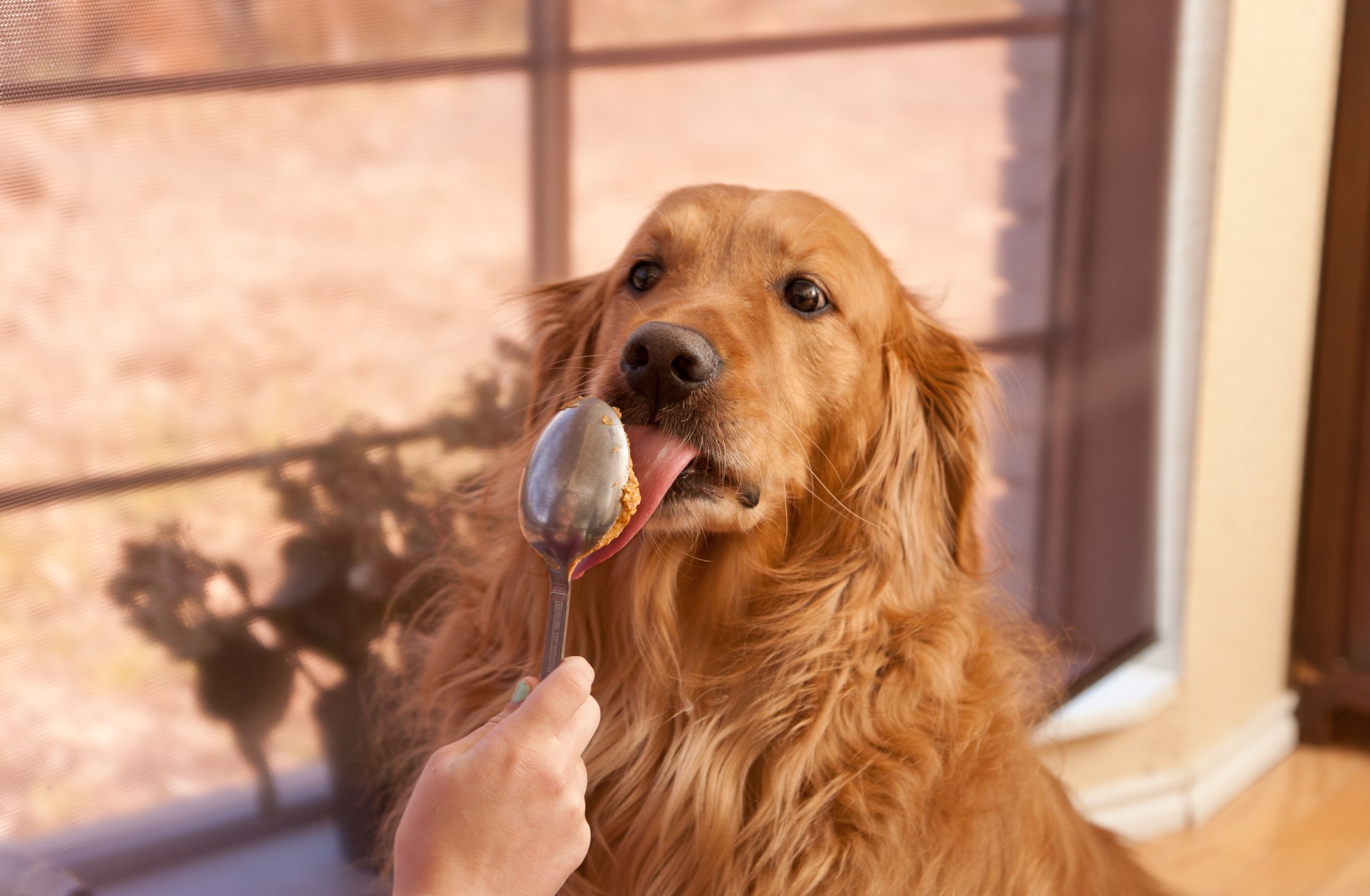Xylitol and the Dangers of Peanut Butter For Pets
The danger of peanut butter for pets has gotten a lot of press lately. A small scoop of peanut butter is often used as a treat and also a delicious way to hide important medications. So what has gone wrong with this wonderful and helpful product?
It’s not peanut butter that’s the problem (though too much of a good thing can cause trouble), rather an ingredient that has been sneaking its way into certain brands over the past few years. This ingredient, a sugar substitute called Xylitol, is toxic for dogs, cats, and some other animals – even a small amount can be fatal.
Your team at Sunrise Boulevard Animal Hospital thought it about time to focus on this substance and build more awareness around how to keep your pets safe.
What is Xylitol?
Originally used in Finland in during World War II – when sugar was scarce – Xylitol is a substance that was first derived from fruit and vegetable fibers. Nowadays, it’s manufactured from a product called xylan, from hardwood trees and corn cobs.
Today, Xylitol is used to sweeten weight loss food items, since it is extremely sweet yet contains a fraction of the calories of sugar. It is also gaining popularity for use in oral health products since it reduces mouth bacteria’s ability to produce acids that damage teeth.
Xylitol and Pets
Xylitol is extremely toxic to pets. When consumed, it causes a massive insulin release from the pancreas. This in turn leads to a severe dip in blood sugar (hypoglycemia) that can cause weakness, muscle tremors, seizures, and collapse.
The first signs of Xylitol toxicity may be seen in pets anywhere from 15 minutes to 12 hours after they consume it. Vomiting may be the first sign. In large quantities, Xylitol causes acute liver failure (hepatic necrosis) which may be followed by death.
Although dogs are the more common victims of Xylitol toxicity, cats are just as susceptible. However, since cats are more discriminate (read: picky!) about what they eat, they are less likely to consume a toxic dose.
Peanut Butter, Xylitol, and Your Pet
There are currently 5 brands of peanut butter that contain Xylitol. They are:
- Go Nuts, Co.
- Krush Nutrition
- Nuts ‘N More
- P28
- No Cow (Previously D’s Naturals)
However, peanut butter is only the tip of the iceberg when it comes to Xylitol-containing products in your home. There are hundreds of common household products that currently contain this substance. We’ll give you a head start as you prepare to go through your cabinets, looking at labels and removing or securing anything containing Xylitol (and we hope you do just that!).
- Peanut butter
- Sugar free candy
- Energy drinks
- Jello and pudding
- Jam and jelly
- Ice cream
- Sugar free gum
- Sugar free breath mints
- Toothpaste
- Mouthwash
- Nasal spray
- Nicotine gum
- Vitamins, especially children’s vitamins
- Digestive aids (Beano, antacids)
- Prescriptions
- Over the counter medications, syrups and suspensions, sleep aids
- Cosmetics
- Body and facial creams
- Other personal care products
Food products are regulated to list ingredients in order of predominance by weight. But drugs and personal care products don’t have the same rules, so keep in mind that Xylitol could be listed under “inactive ingredients”.
Treatment of Xylitol Toxicity
If your pet consumes xylitol, it’s a life-threatening emergency. Bring your pet in to see us right away. If it’s after hours, go to the nearest veterinary emergency hospital for immediate treatment – don’t wait until morning!
It is very helpful to bring the wrapper the product was in, so that our team can more accurately determine how much xylitol your pet ate. Treatment may depend upon how much your pet ate, and when.
Inducing vomiting may be recommended if the pet ate xylitol within the past 30 minutes (before it leaves the stomach for the small intestine). If it has been longer than that, treatment may also need to include:
- Hospitalization with 24 hour monitoring
- IV fluids
- IV Dextrose
- Blood monitoring
- Blood transfusion
- Liver protectant medications
With a little extra attention to xylitol and where it is found, we can help protect your pets from xylitol toxicity. If you have any questions or concerns, please don’t hesitate to contact your team at Sunrise Boulevard Animal Hospital.

